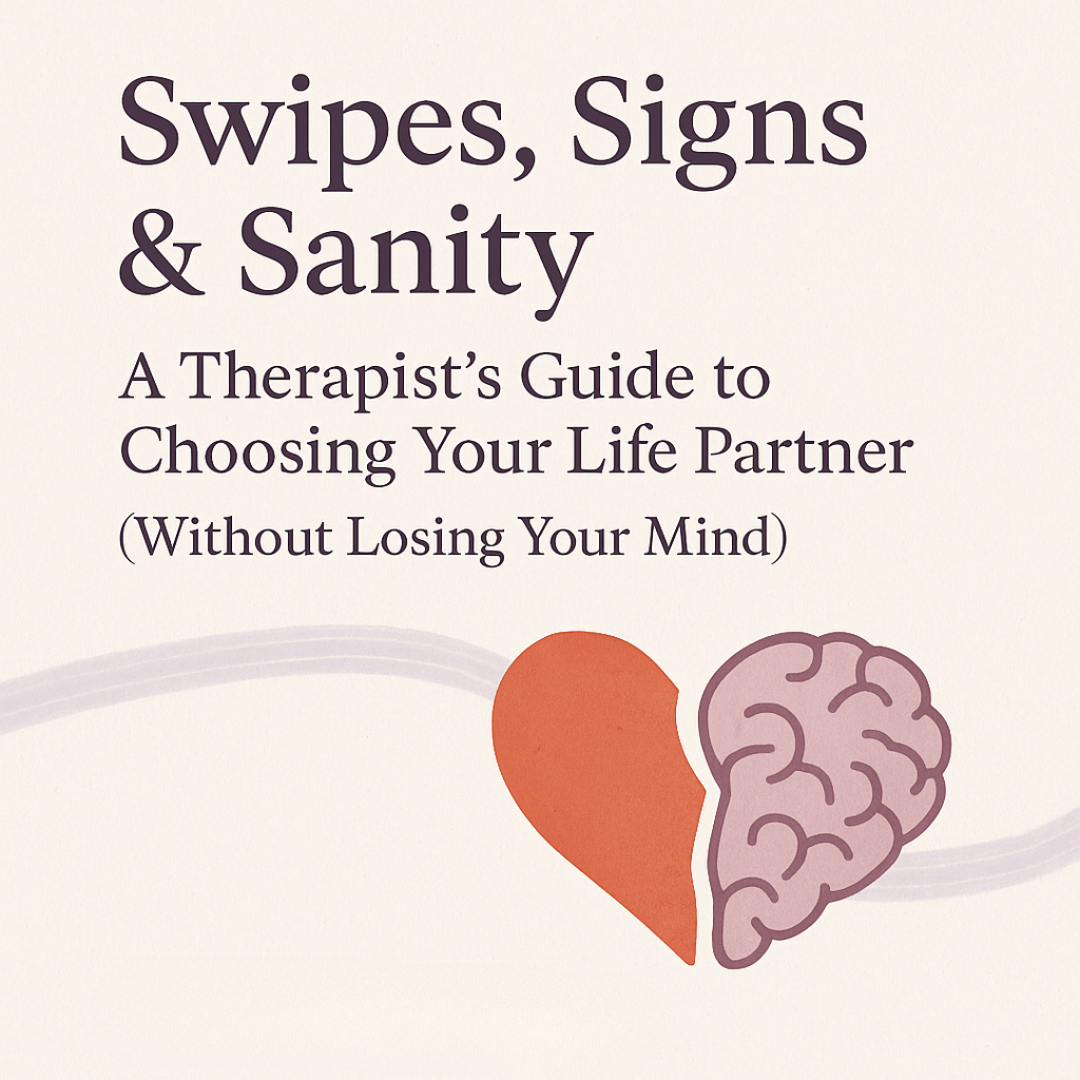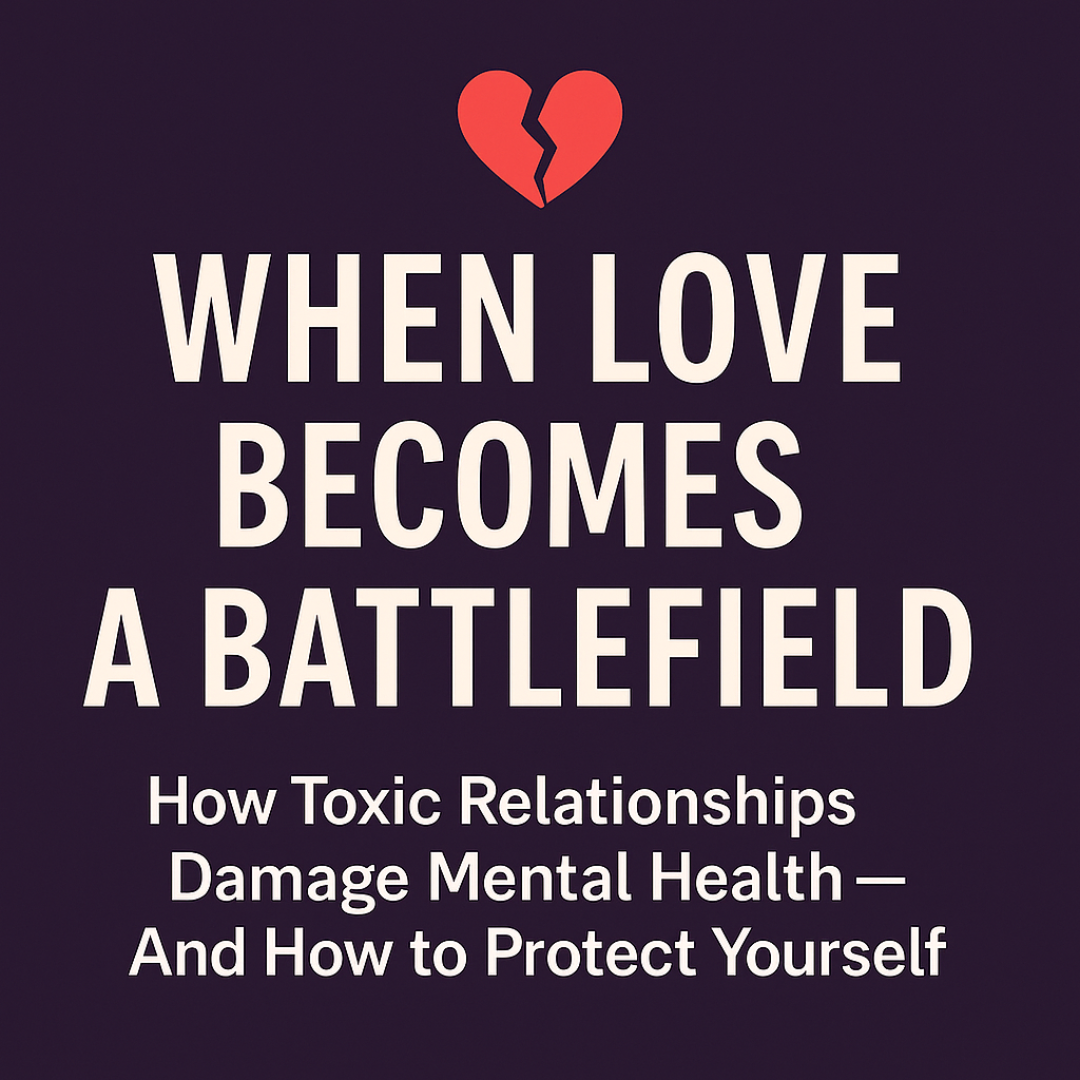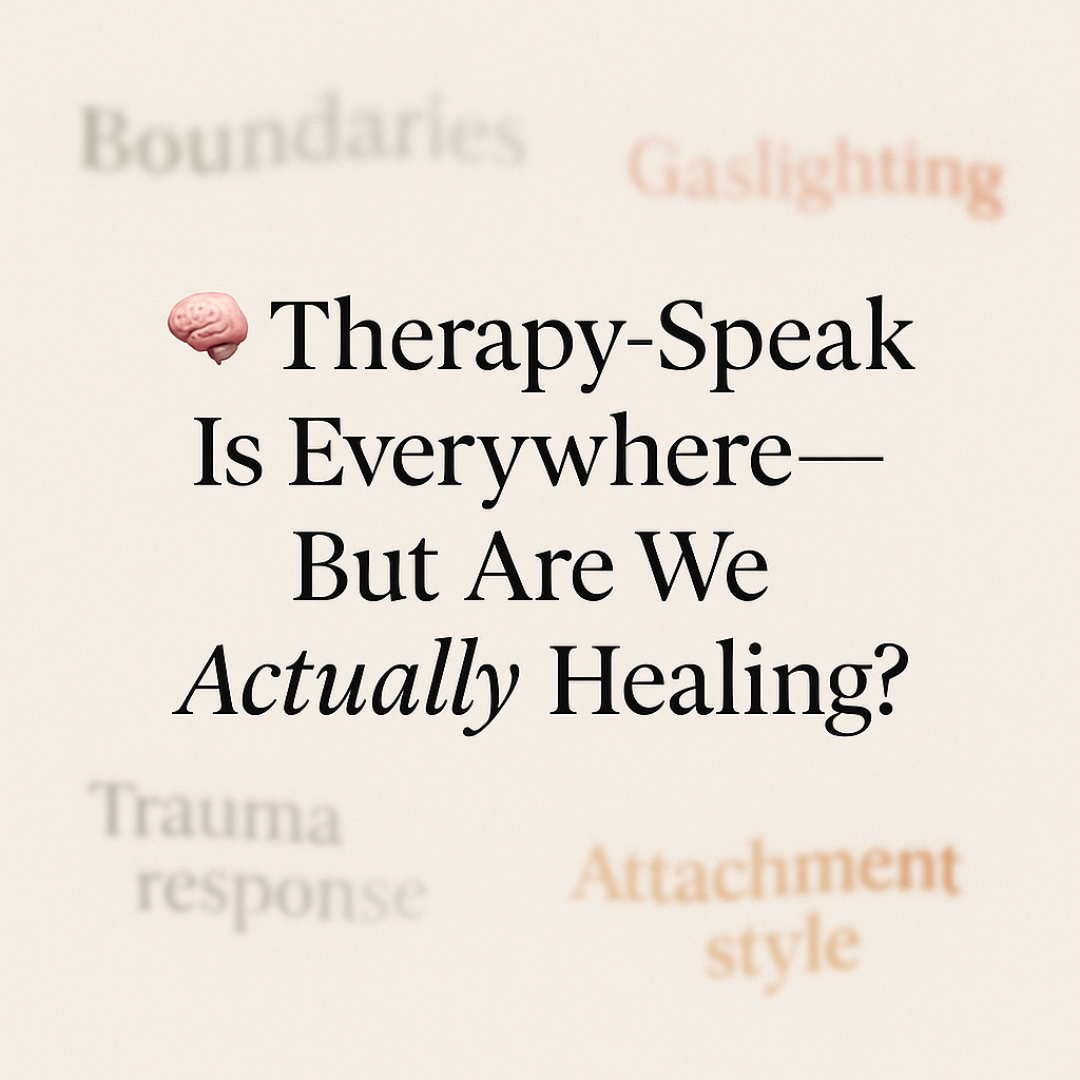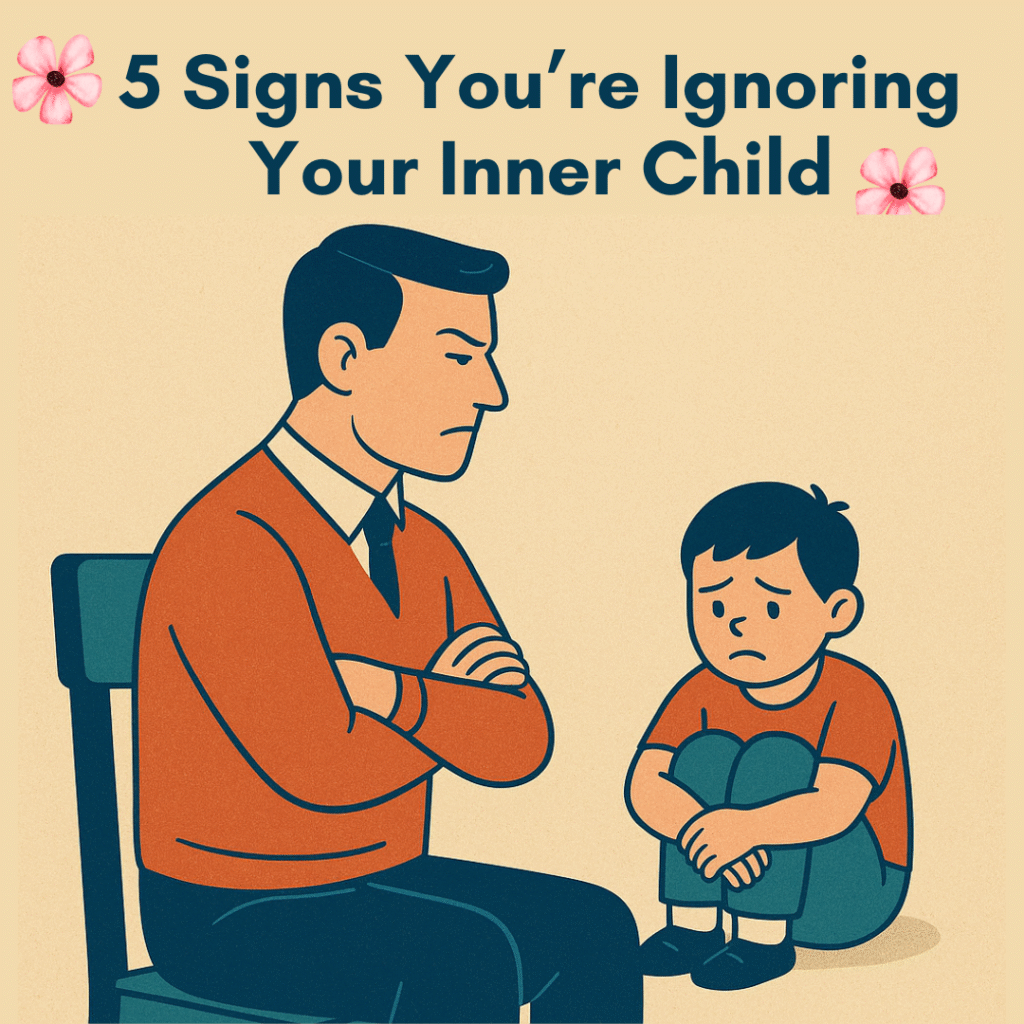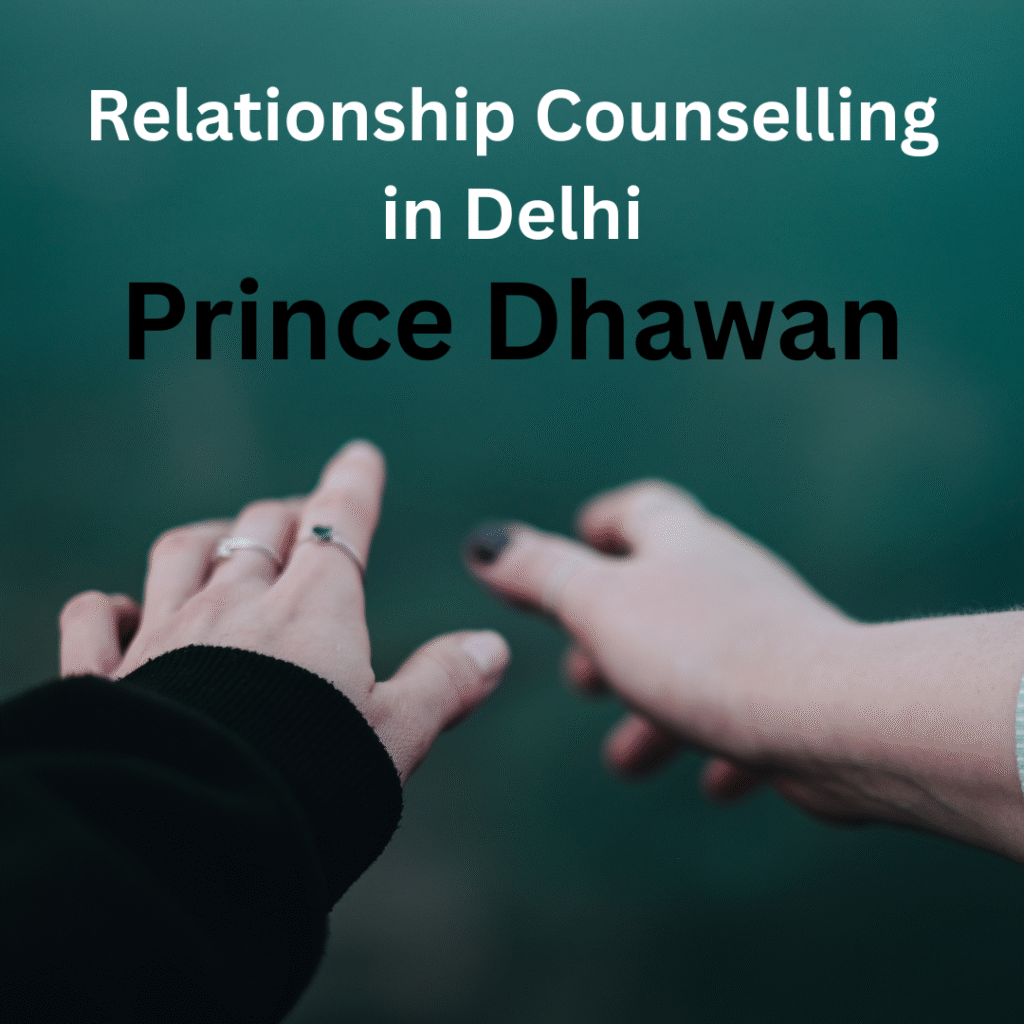A Therapist’s Guide to Choosing Your Life Partner
Swipes, Signs & Sanity: A Therapist’s Guide to Choosing Your Life Partner (Without Losing Your Mind) Let’s face it. Choosing a life partner today feels like scrolling through Netflix—so many options, but nothing quite feels right.And if you’re swiping left and right hoping for fate to take over… Well, fate could use some help. As a therapist, I often see the after-effects of poorly chosen partnerships—emotional burnout, identity loss, trauma loops, and chronic confusion.But I also witness the healing power of safe, kind, grounded love. So before you commit to a partner, here’s a therapist-approved checklist to help you pick someone you can not only love—but live with. Don’t just ask “Do I love them?” — Ask “Do I feel like myself around them?” Love can be intoxicating. But authenticity is oxygen.If you’re constantly editing yourself—shrinking your voice, filtering your feelings, or walking on eggshells—that’s not love, that’s a performance. Green flag: You can say weird things, show your insecurities, cry ugly, and they still hold space for you. Choose emotional safety over emotional drama Yes, sparks are great. But stability is sexier than stress.You don’t need someone who makes your heart race in fear of losing them—you need someone who makes your nervous system exhale. Green flag: You don’t have to guess where you stand. Red flag: You keep second-guessing their intentions. Compatibility isn’t just habits—it’s healing patterns A therapist would ask: Do they trigger your childhood wounds—or help you soothe them? Do they understand your attachment style—or make it worse? Sometimes, we confuse chemistry with trauma familiarity.If you keep picking people who feel “exciting” but chaotic—pause. That may be your trauma talking, not your heart. Shared values > Shared interests Yes, you both love Thai food and murder podcasts.Cute.But… What about your values on money, family, time, boundaries, ambition, mental health, healing, and growth? Green flag: You can talk about the hard stuff—even if you disagree—and still feel connected. Pick the person who holds a mirror, not a mask A healthy partner reflects your best self back to you—while gently calling out your blind spots.They don’t manipulate.They don’t gaslight.They don’t make you question your reality. They help you grow, not shrink. Look beyond the resume. Ask: “Do they have emotional maturity?” Can they: Apologize without defensiveness? Regulate their emotions? Respect your boundaries, even when they’re disappointed? Because at the end of the day, it’s not their job title or travel stories that determine relationship quality—it’s their emotional intelligence. Pick someone who chooses you daily, not just desires you occasionally Love isn’t just a feeling. It’s a choice.And the right partner doesn’t just make you feel special on your birthday or anniversary—they show up for the boring Tuesdays, the tired Fridays, and the difficult Decembers. Final Thoughts: Forget the idea of “finding the one.”Instead, ask yourself:Can we become the one for each other, together? You’re not looking for perfection.You’re looking for presence, partnership, and peace. And remember:If you’re still not sure about someone, ask yourself—“Does being with them feel like coming home—or like losing myself?” Choose wisely. Your future self will thank you. P.S. Want help unpacking your patterns before you pick your partner? Therapy can be the best wingman you never knew you needed.
A Therapist’s Guide to Choosing Your Life Partner Read More »

